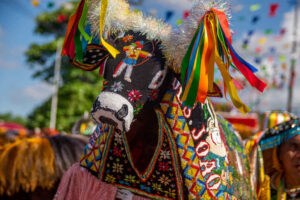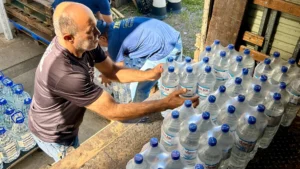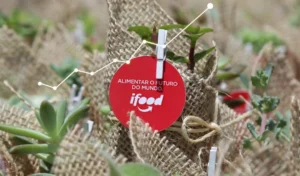You may have already heard about carbon credits, right? But you know what for
does it work in practice? Why companies that announce commitments to the environment
environment, such as iFood, are increasingly turning their attention to credit
carbon as an alternative to neutralization?
The answer lies at the very origin of carbon credits, which are generated by
environmental projects that capture greenhouse gases greenhouse effect or that they avoid and even
reduce their emissions. Credits can only be traded on the market
of carbon credits if they have certification granted by a
international carbon certifier.
Credits from forest conservation projects acquired by iFood in
within the scope of the Entrega Neutra program, of the iFood Regenera commitment, were
certified by Voluntary Carbon Standards (VCS). Each carbon credit
equivalent to a ton of carbon captured and which also helps to combat
deforestation in the Amazon Rainforest.
To balance the equation between CO2 emissions in deliveries by mode
pollutants and the preservation of the environment, iFood acquired in credit
carbon equivalent to more than 115 thousand tons of CO2. In practice, this
means protecting 1,250,000 square meters of the Amazon Rainforest in the second
semester of 2021, an area the size of
125 official football pitches.
With this initiative, mediated by the startup Moss – specialized in projects
environmental issues and the carbon credit market - the idea is to preserve
forests in one of the regions with the greatest deforestation in the Amazon biome in the country:
in the so-called “arc of deforestation”, a strip that runs from Pará to Maranhão.
Projects benefited
One of the projects benefiting from the acquisition of carbon credits made by
iFood is the
Fortaleza Ituxi Farm, in Lábrea. This small city in the south of Amazonas, affectionately known
as “Little Princess of Purus”, has an agricultural tradition and is one of those who suffer most
with deforestation in the region, especially due to the expansion of livestock farming.
The Fortaleza Ituxi Farm has 150 thousand hectares destined for preservation
environmental. To avoid deforestation, the project encourages management
sustainable since 2013 and empowers the local community to explore
economically forest resources in a balanced way, both in
livestock farming such as the cultivation of açaí and chestnuts.
Today, Lábrea workers receive technical training in livestock farming
sustainable and forest management; In the future, the project is considering installing a
small factory processing non-wood products and a nursery for
seedling production.
“When we started, they were dismissive of the project. They told me to deforest everything and
raise livestock. Today they come to me asking about how they can invest too”,
comments Ricardo Stoppe Jr., owner of Fazenda Ituxi. “If the feasibility
financial situation remains with the sale of carbon credits, I really
I believe the Amazon can be saved.”
This is one of the several projects that Moss works on in its
environmental preservation through the negotiation of carbon credits. He would
falls into the REDD category (acronym in English for Reduction of Emissions by
Deforestation and Forest Degradation), which is the focus of iFood's actions for
offer an economic incentive to reduce greenhouse gas emissions
greenhouse – especially those that can be avoided by reducing the
logging.
Like the other projects endorsed by Moss.Earth, Fazenda Fortaleza
Ituxi has undergone a due diligence process and is certified by VERRA, the largest
and the most important carbon emission reduction certification body in the world
world.
By purchasing carbon credits to offset your CO2 emissions, iFood
helps combat deforestation in the Amazon and keep the forests alive
will capture carbon dioxide from the atmosphere naturally, today and in the future.
“Protecting the Amazon forest is protecting Brazil’s main asset against
climate changes. To combat deforestation, we want to work with
projects focused on conservation and forest management and that value
bioeconomy in your region”, says André Borges, head of Sustainability at
iFood.



